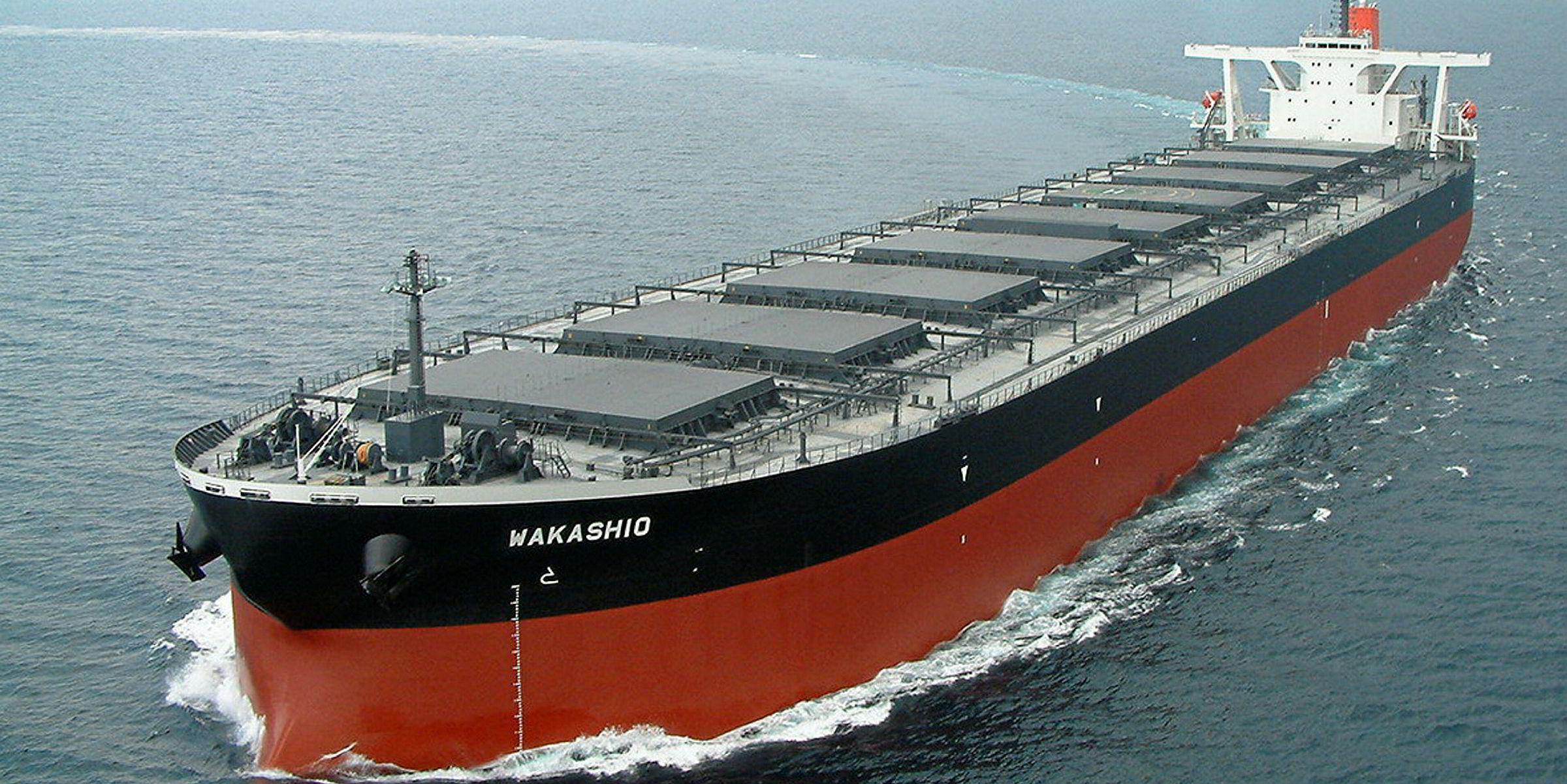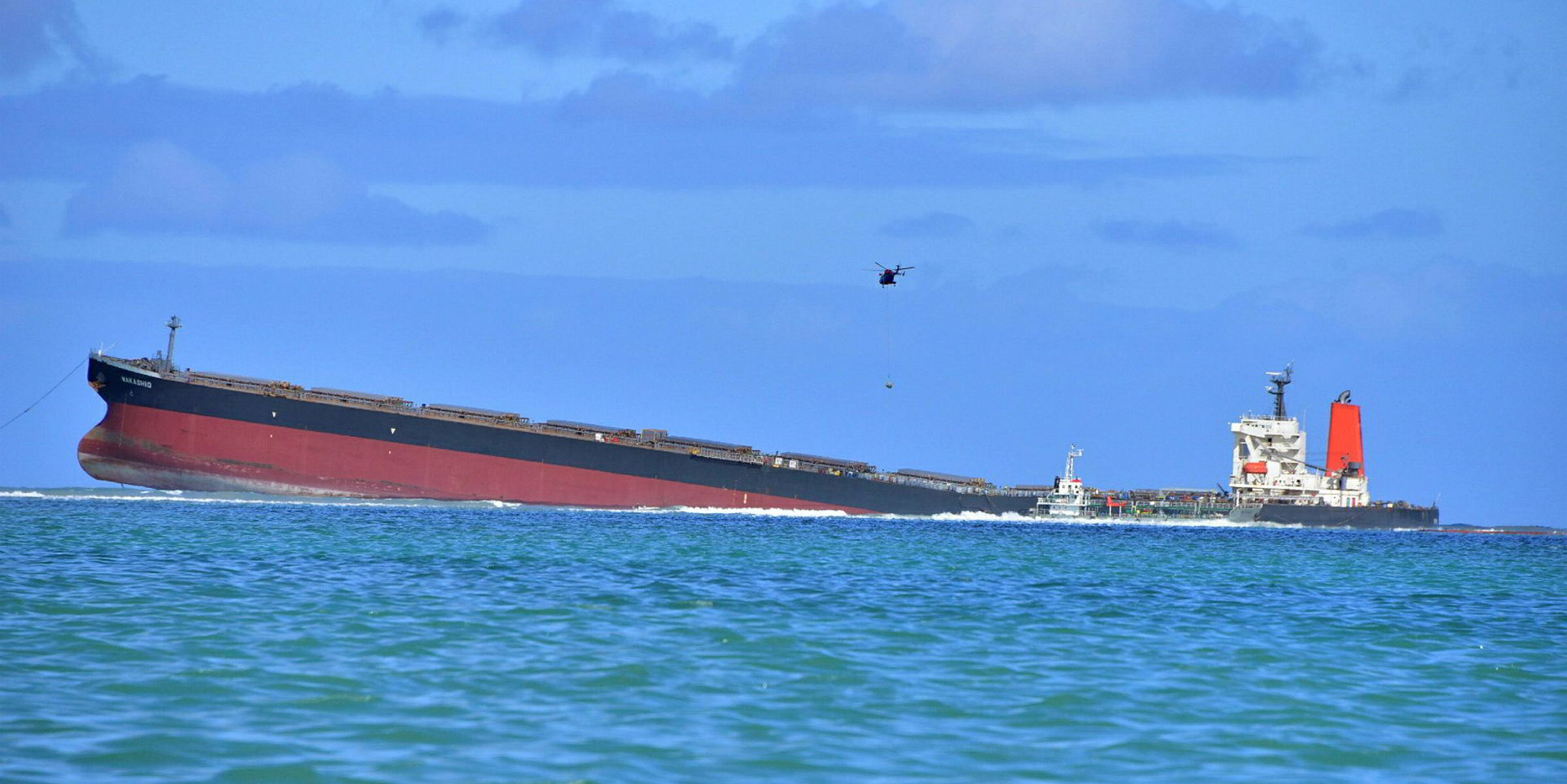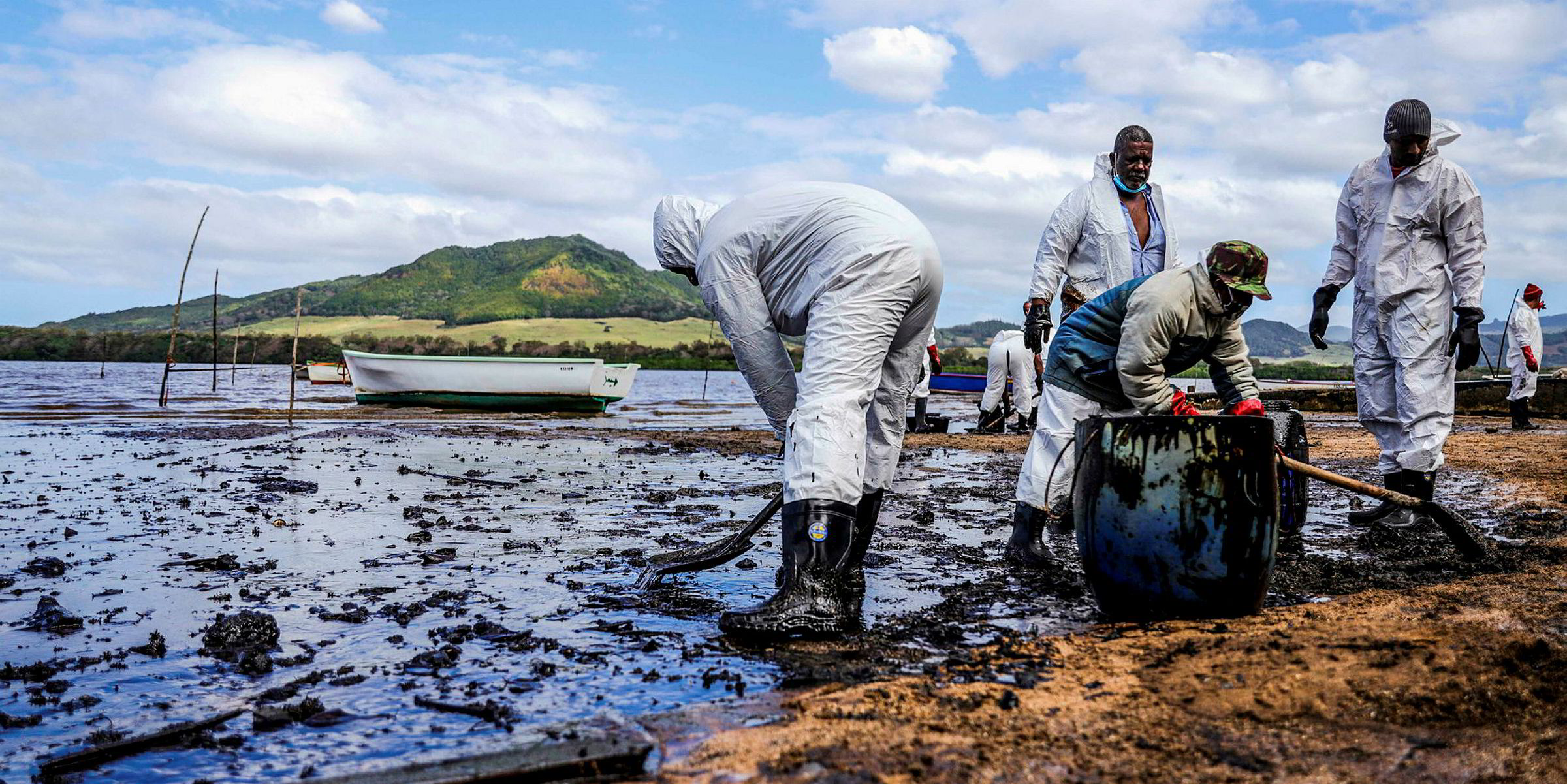Almost all crew on the bulker at the centre of an environmental crisis off Mauritius had not worked beyond their initial one-year contracts at the time of its grounding, according to the vessel’s owner.
The incident occurred amid wider concerns that a major casualty is imminent because crews are being overworked, as the pandemic forces them to remain on board beyond their contracted period of employment.
The grounding of the 203,000-dwt bulker Wakashio (built 2007) off the coast of Mauritius has led to a 1,000-tonne fuel oil spill.
The casualty has caused widespread pollution at Pointe d’Esny, devastating the local environment, including beaches, reefs and wildlife on the paradise island.
Nagashiki Shipping president Kiyoaki Nagashiki told a Tokyo press conference that only two crew had been on board the vessel for an extended period, the remainder had not completed half of their one-year term of employment.
The ship’s master, who is responsible for the ship’s navigation, had not completed his contract but had decided to extend his employment at sea with the company.
The company said: “The master is within the 12-month maximum contract period. After the initial five-month contract, on the request of the master, his contract was extended until the end of September 2020.”
Nagashiki Shipping owns 11 ships, but the Wakashio is the only vessel it manages, with the other ships under third-party management.

There were 20 crew on board the vessel when the accident occurred, comprising three Indian officers, one Sri Lankan and 16 Filipinos.
There have been repeated warnings that overworked and stressed crews who cannot get home during the pandemic could cause a major casualty. The International Transport Workers’ Federation (ITF) is among those that have voiced its concerns.
ITF general secretary Steve Cotton recently said: “Seafarers and their unions are deeply concerned about the risk to life, property and the environment as the chances of a major catastrophe, or catastrophes, rises daily. Government’s must act before we see more people die, or worse — a major maritime disaster. Urgent action is required.”
In a statement, Mitusi OSK Lines, the charterer of the vessel, said that 1,180 tonnes of the 4,000 tonnes of fuel oil on board had leaked from the Wakashio’s fuel tanks. Of that, 1,000 tonnes had polluted the surrounding coastline. About 400 tonnes of spilled fuel has been recovered.
Another 1,020 tonnes of fuel oil has been safely transferred from the Wakashio's tanks. About 1,600 tonnes of fuel oil and 200 tonnes of diesel remain on the ship.
The ship is still in danger of breaking up.
MOL said: “We confirmed that the crack inside the hull had expanded. Since this ship is unable to navigate by itself, it is moored to a tugboat so that it will not drift even if it is broken.”
The International Maritime Organization has also sent a team of experts to assist in the pollution control.






